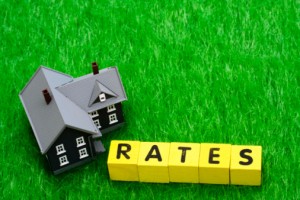 One of the biggest decisions you’ll face as a homeowner is surrounding your mortgage. Should I choose a fixed or variable rate mortgage? What term should I should? Should I pay weekly, biweekly, or monthly? Before you worry about those factors, it’s important to have at least a basic understanding of mortgage rates. There are two basic types of mortgages: fixed and variable. As you’ll soon see, rates on both types of mortgages are driven by different factors.
One of the biggest decisions you’ll face as a homeowner is surrounding your mortgage. Should I choose a fixed or variable rate mortgage? What term should I should? Should I pay weekly, biweekly, or monthly? Before you worry about those factors, it’s important to have at least a basic understanding of mortgage rates. There are two basic types of mortgages: fixed and variable. As you’ll soon see, rates on both types of mortgages are driven by different factors.
What is Prime Rate?
Prime rate is the lowest interest rate charged by banks to their most creditworthy customers. Several factors affect whether you qualify for prime rate, including your credit score, assets, liabilities, and income. A mortgage represents a lot of money, so before a bank will approve it, it will want to make sure you have the means to pay it back. Banks use prime rate as the cost of borrowing on a number of financial products, including mortgages, lines of credits, and student loans.
What Affects Prime Rate?
Banks base their prime rate on the overnight lending rate set by the Bank of Canada, plus a spread. When Canada’s central bank increases the overnight lending rate, banks often follow suit. For example, the overnight lending rate has been frozen at 1 per cent for over four years since September 2010. Banks currently have a spread of 2 per cent, so prime rate sits at 3 per cent. Banks also have a spread depending on the type of financial product. For example, you can get a Home Equity Line of Credit (HELOC) for as little as 3.5% (prime plus 0.5%).
How Does Prime Rate Affect Mortgage Rates?
As mentioned, there are two types of mortgages. Prime rate only affects variable rate mortgages. Fixed mortgage rates are based on Government of Canada Bond Yields, plus a spread. Variable rate mortgages have a direct relationship to prime rate. The mortgage rate on your variable rate mortgage is based on prime rate plus or minus a spread. For example, if your mortgage rate is prime minus 0.5%, based on the current prime rate of 3%, your mortgage rate would be 2.5%.
A variable rate mortgage is a good way to save money as long as prime rate doesn’t increase. When prime rate increases, so does your mortgage rate. When interest rates are falling or remain the same, a variable rate mortgage can be a good way to save money, but in a rising interest rate environment, more of your money goes towards interest and less towards principal every time prime rate goes up.
First-time homebuyers and those who are risk-adverse will often sleep better at night with the safety and security of a fixed rate mortgage. For everyone else, a variable rate mortgage is worth considering.
Source: http://rates.ca/guidelist/mortgages
Sean Cooper is the bestselling author of the book, Burn Your Mortgage: The Simple, Powerful Path to Financial Freedom for Canadians, available now on Amazon and at Chapters, Indigo and major bookstores, and as an Audiobook on Amazon, Audible and iTunes.
